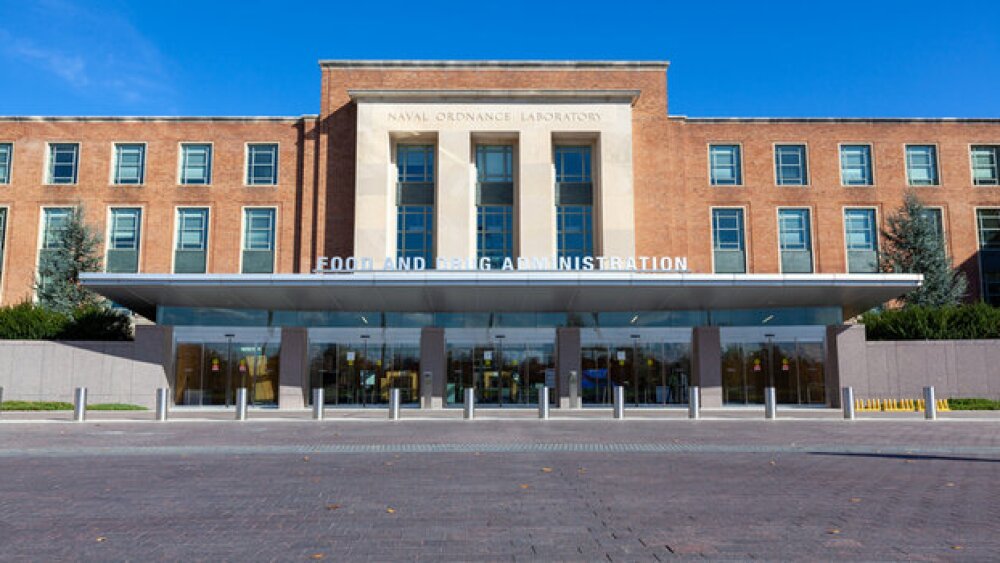Citing the need for more time to review additional Chemistry, Manufacturing and Controls information, the FDA has extended its target action date for Rocket Pharmaceuticals’ investigational gene therapy by three months.
Pictured: Entrance to the FDA’s office in Maryland/iStock, Grandbrothers
New Jersey-based Rocket Pharmaceuticals announced on Tuesday that the FDA is extending its review period by three months for the investigational gene therapy Kresladi (marnetegragene autotemcel), being proposed for the treatment of the rare disease leukocyte adhesion deficiency-I.
The regulator has pushed back its target action date on Kresladi to June 30, 2024, giving it more time to go through Rocket’s additional submissions regarding the therapy’s Chemistry, Manufacturing and Controls. The FDA has confirmed that it will not hold an advisory committee meeting to discuss Kresladi’s Biologics License Application (BLA).
CEO Gaurav Shah said in a statement that Rocket remains confident in its application for Kresladi. The company will continue to work closely with the FDA “and together share a deep sense of responsibility in the rigorous process” of reviewing novel and “potentially curative gene therapies.”
Leukocyte adhesion deficiency-I (LAD-I) is a rare and autosomal recessive blood disorder that most often arises during childhood. LAD-I is caused by mutations in the ITGB2 gene leading to a faulty CD18 protein, which is key to leukocyte adhesion and facilitates their escape from blood vessels into tissues to combat infections.
Children with LAD-I typically suffer from recurrent and life-threatening bacterial and fungal infections that are resistant to antimicrobial treatment. For patients who survive infancy, LAD-I can then manifest as pneumonia, gingival ulcers and septicemia. Without a bone marrow transplant, survival beyond childhood is unlikely.
Kresladi, an investigational and autologous gene therapy, addresses the underlying pathology of LAD-I by using the patient’s own hematopoietic stem cells and causing them through genetic modification to deliver a functional copy of the ITGB2 gene. This mechanism of action has won Kresladi the FDA’s Regenerative Medicine Advanced Therapy, Rare Pediatric and Fast Track designations.
Kresladi’s BLA, which the FDA accepted in October 2023, is backed by topline Phase I/II data, which enrolled nine LAD-I patients and demonstrated a 100% overall survival at 12 months after infusion. The study also detected a steep decline in the incidence of significant infections, as well as resolution of LAD-I skin lesions. Patients who were treated with Kresladi also recovered their ability to repair wounds.
If approved, Kresladi would be among the first gene therapies clearing the FDA’s regulatory hurdle this year. According to advocacy group Alliance for Regenerative Medicine (ARM), 2024 could witness a large jump in the number of cell and gene therapy approvals.
In ARM’s annual Cell & Gene State of the Industry briefing last month, the group noted that the sector could see up to 17 approvals in in the U.S. and European Union, including more hemophilia A therapies as well as the first allogeneic T-cell therapy in the U.S.
Tristan Manalac is an independent science writer based in Metro Manila, Philippines. Reach out to him on LinkedIn or email him at tristan@tristanmanalac.com or tristan.manalac@biospace.com.






